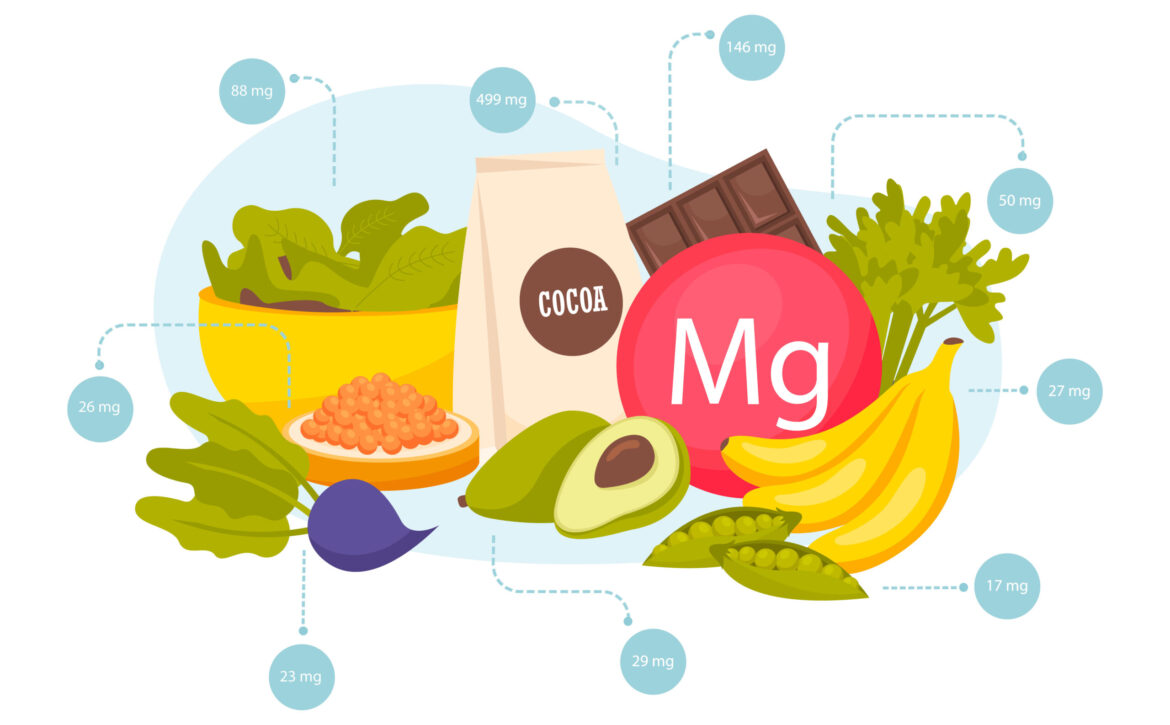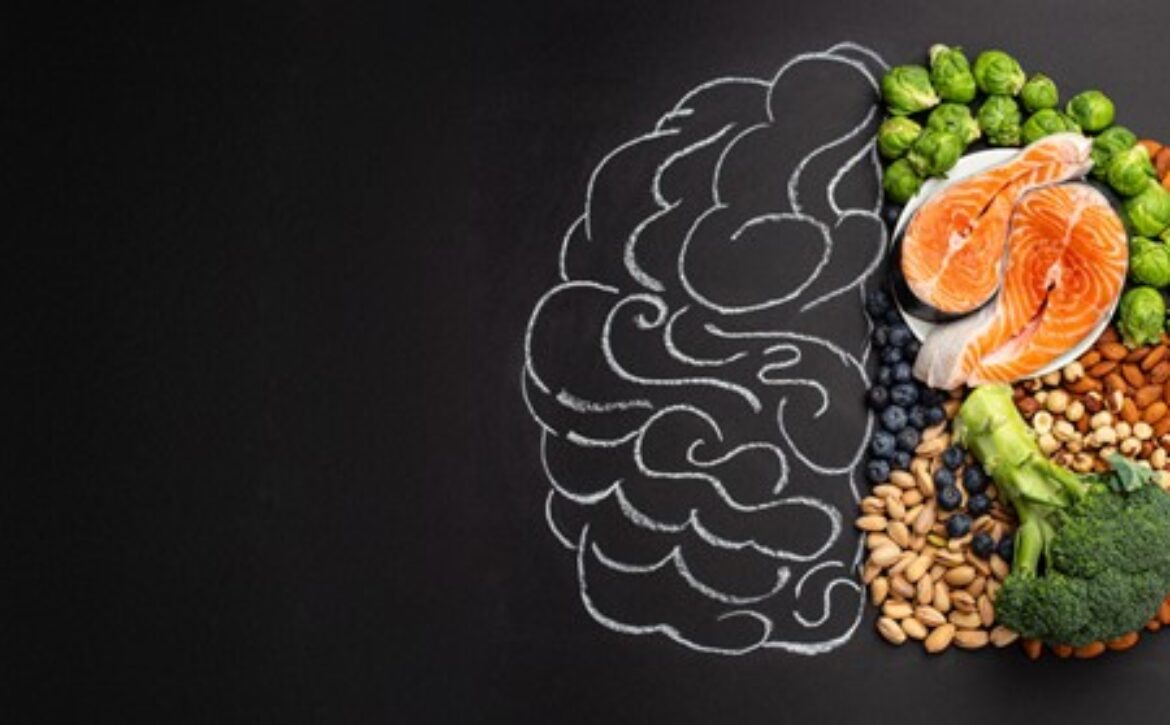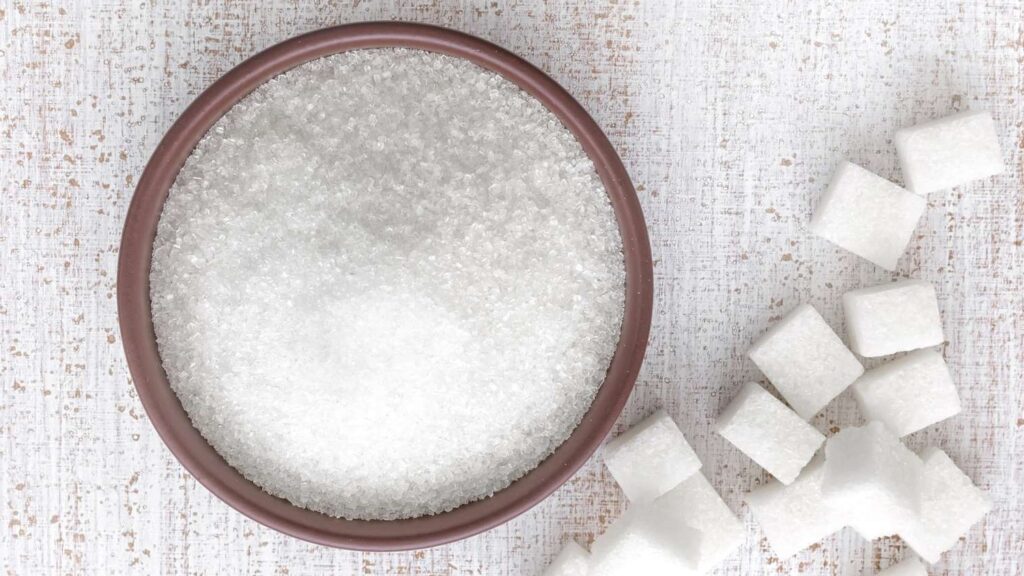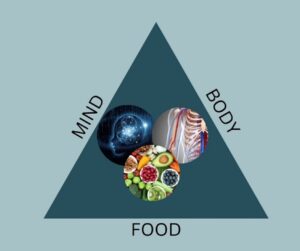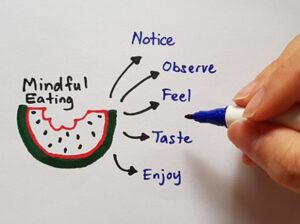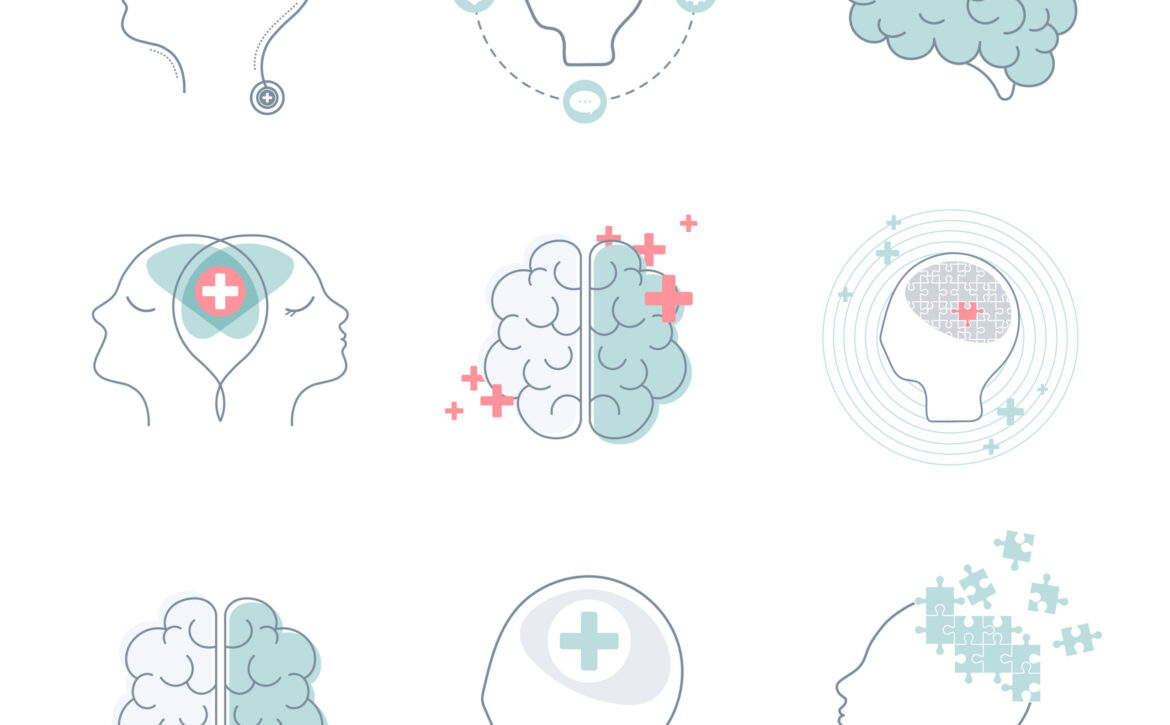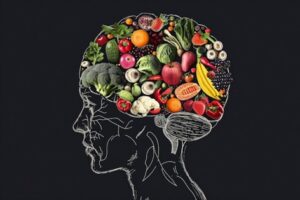How Does Nutrition Support Mental Health During Depressive Episodes
Link between Diet and Depression
Depression and anxiety are very common mental health conditions that affect many people worldwide. These conditions can lead to difficulties in day-to-day life and are a major cause of disability. Even if someone doesn’t have a diagnosed mental health condition, they might still experience milder symptoms of depression and anxiety, which can impact their overall wellbeing.
Recent interest has been growing in understanding how our diet can impact mental health. Studies have found that following healthy diets, like the Mediterranean diet with lots of fruits, vegetables, nuts, and legumes, and less red meat, may lower the risk of depression. However, it’s important to note that the relationship between diet and mental health is complex because our mental state can also affect the food choices we make. For example, when we feel down, we might crave certain foods for comfort. People with long-term mental health conditions may face additional challenges in maintaining a healthy diet due to factors like cost, access to healthy foods, and how their mental illness can affect their appetite. It’s crucial to consider these factors when exploring how nutrition can impact mental health
Recognizing the intricate and multidirectional connections between diet and mental health, this article will specifically explore the impact of certain foods and dietary patterns on mental wellbeing.
Depression and Carbohydrates
Eating a lot of refined carbohydrates, like sugary foods and processed grains, can increase the risk of obesity and diabetes. It explains that refined carbohydrates affect our blood glucose levels quickly, leading to potential health problems. Diets high in refined carbohydrates may not only harm our physical health but also impact our mental well-being.
Consuming a lot of refined carbohydrates may be linked to an increased risk of depression and anxiety. This could be due to the rapid fluctuations in blood sugar levels caused by these types of foods. When blood sugar levels drop too low, our body releases stress hormones like cortisol and adrenaline, which can affect our mood and make us feel irritable or anxious.
The effects of refined carbohydrates on mental health could be related to other factors, such as the risk of developing diabetes. Diabetes and mental health issues like depression often coexist, possibly because they share some common abnormalities in the body, like insulin resistance and inflammation.
Inflammation, Diet and Depression
Food we eat can affect our body’s inflammation levels, which in turn can impact our mental health, specifically depression. Following a Mediterranean diet, which includes lots of fruits, vegetables, whole grains, and healthy fats like olive oil, can help reduce inflammation in our bodies. On the other hand, eating meals high in calories and saturated fats can increase inflammation, which is not good for our brain health and can contribute to conditions like cognitive decline and depression.
Certain nutrients in foods, like omega-3 fatty acids found in fish, can have anti-inflammatory effects and potentially help prevent or alleviate symptoms of depression. Some studies have shown that medications that cause inflammation can lead to depressive symptoms, but giving anti-inflammatory nutrients beforehand may help prevent this. However, the relationship between diet, inflammation, and depression is not always straightforward. Factors like stress, past history of depression, and individual differences in inflammatory response influence how diet affects inflammation and mood.
Gut Microbiome, Diet and Depression
Research has shown a complex interplay between the gut microbiome, diet and depression. Healthy dietary patterns, such as the Mediterranean diet, have been associated with better mental health compared to unhealthy eating patterns, like the Western diet. For instance, the consumption of highly refined carbohydrates with a high glycemic index has been linked to an increased risk of obesity, diabetes, and depressive symptoms. However, diets high in fibers, polyphenols, and unsaturated fatty acids, such as the Mediterranean diet, can promote beneficial microbial taxa in the gut, potentially influencing mood regulation.
The gut microbiome interacts bidirectionally with the brain through neural, inflammatory, and hormonal pathways, potentially impacting mood. Experimental research has indicated that ingestion of probiotics may influence the brain’s response to emotional stimuli and potentially reduce symptoms of depression. While promising, there is still a need for further research to establish causal relationships, identify specific microbial strains or metabolites involved, and determine the timing and effectiveness of interventions targeting the gut microbiome to improve mental well-being.
Boost Mental Health Through Better Nutrition
When it comes to managing depression through diet, certain foods and nutrients have been suggested the best depression specialist doctors in mumbai at RNR Medicine department, to help improve symptoms. Here are some diet tips for addressing depression:
- Selenium: Increasing selenium intake from sources such as whole grains, Brazil nuts, seafood, and organ meats help improve mood and reduce anxiety.
- Vitamin D: Adequate levels of vitamin D, obtained through exposure to sunlight and dietary sources like oily fish, fortified dairy products, beef liver, and eggs, may help improve symptoms of depression.
- Omega-3 Fatty Acids: Consuming omega-3 fatty acids from sources like cold-water fish, flaxseed, flaxseed oil, chia seeds, and walnuts may be beneficial for depressive disorders.
- Antioxidants: Including fresh, plant-based foods rich in antioxidants such as vitamins A (beta carotene), C, and E can help reduce oxidative stress and potentially alleviate symptoms of anxiety and depression.
- B Vitamins: Foods containing vitamin B-12 (such as eggs, meat, and dairy products) and folate (found in dark leafy vegetables, fruit, nuts, and whole grains) help protect and maintain the nervous system, potentially reducing the risk and symptoms of mood disorders.
- Zinc: Adequate intake of zinc from whole grains, oysters, beef, poultry, beans, and nuts help boost the immune system and influence depression positively.
- Protein: Consuming protein-rich foods like tuna, turkey, and chickpeas, which contain the amino acid tryptophan, aid in the production of serotonin, the “feel good” hormone, potentially benefiting individuals with depression.
- Probiotics: Foods such as yogurt and kefir help boost levels of beneficial bacteria in the gut, potentially reducing the risk of depression.
In addition to incorporating these beneficial foods, it’s also important to consider avoiding certain foods that may aggravate depression symptoms, such as alcohol, refined foods, processed oils, and excessive caffeine.



